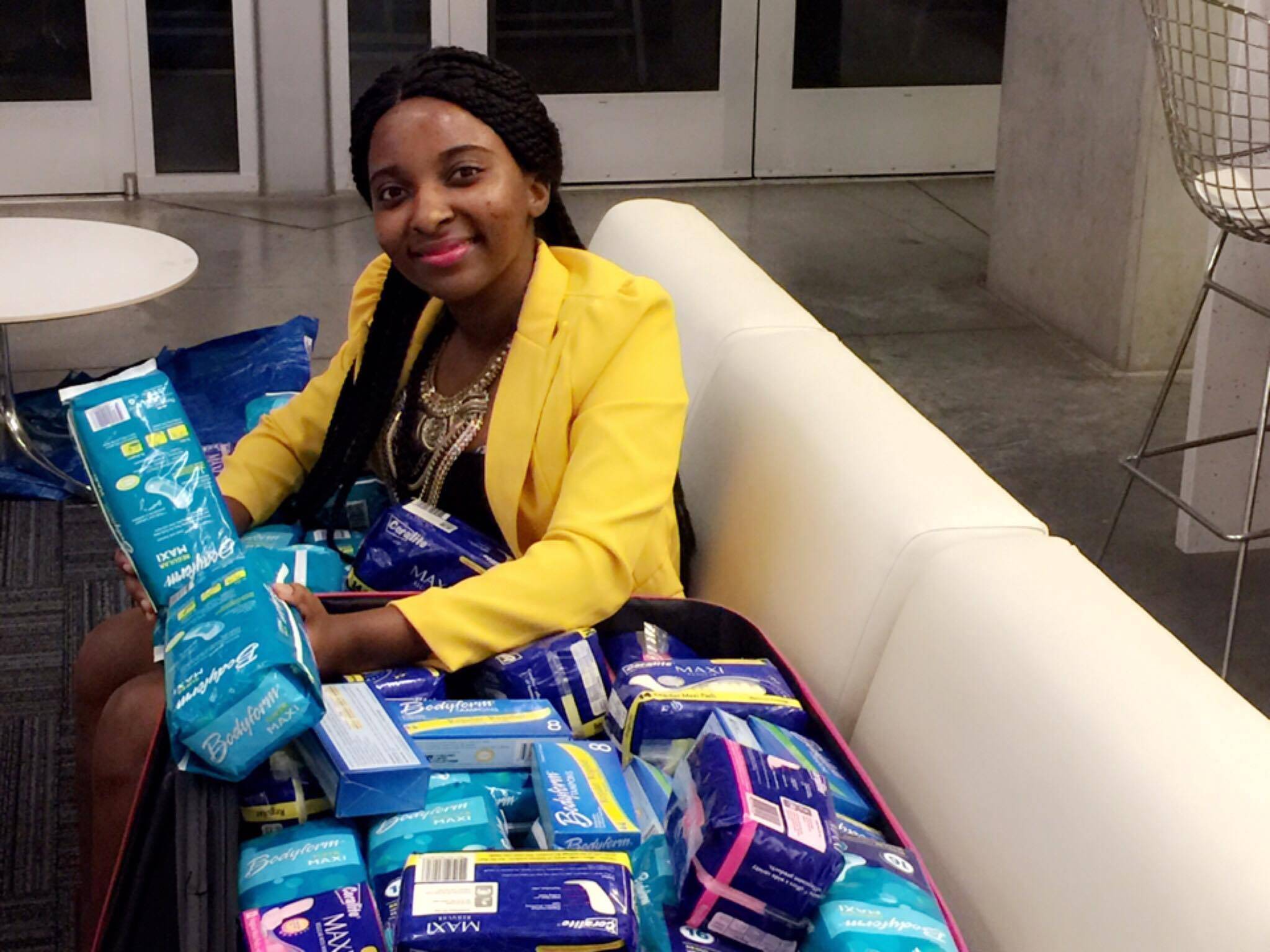
Reusable Strength: Building Better Hygiene Products for Women and Girls
International Women's Day 2017 Stories
In celebration of International Women’s Day, Scholars share their best stories of bold change for young women and girls across Africa. Ritah Arishaba, a Scholar pursuing her undergraduate degree in Public Health at Arizona State University, explores what a lack of access to safe, inexpensive feminine hygiene can mean for girls and women in Uganda, and in the United States.
I was born and raised in Kakiika Village, Mbarara Uganda. I grew up poor, and as a young woman, I remember what it felt like to experience need. My mother, Annet, is a handy woman. She has always created everything that she needed, teaching me how to knit and make clothes, and later, she taught me how to make reusable sanitary towels from our old clothes. By making our own sanitary napkins, we spared money for food and to pay school fees.
The day I came to America to study at Arizona State University under the Mastercard Foundation Scholars Program, I was deeply touched by the strength of the homeless women. My heart moved when I learned how homeless women go through the most painful days of the month without hygienic products, privacy, and access to water. For homeless women, getting their period is frightening because they lack money, not only for food and shelter, but also to buy the pads or tampons they need.
Homeless women live with this fear of humiliation every single day of their lives. What’s more, they are at a higher risk of contracting infections and diseases like vaginal or cervical cancer, all because they are forced to use dirty and unsanitary materials, clothes, papers as a substitute for pads, so that they can save a dollar for food.
Together with Alpha Ngwenya, a fellow Mastercard Foundation Scholar at Arizona State University, we created the Strong Women Strong Love Initiative which supplies feminine hygienic sanitary products to women each month. We partnered with other non-governmental organizations (NGOs) like UMOM Shelter, Andrea House, Central Arizona Shelter Services (CASS), and safe houses for women escaping domestic violence in Phoenix, Arizona, which receives and distributes donations to vulnerable women and girls. We look forward to sustaining our project through donation on the ASU campus, creating a YouCaring page, partnering with health-related NGOs, and pitching our venture for funding.
Much like my mother taught me to make my own pads, I am looking forward to teaching and working together with girls in Kakiika to make their own safe and comfortable sanitary towels. I have created a sample that will be used as a model to create more sanitary towels to be supplied girls in my village starting May 2017. By teaching them these skills, it is my hope that they won’t have to miss school because of pain, frustration or embarrassment during their menstrual periods.



